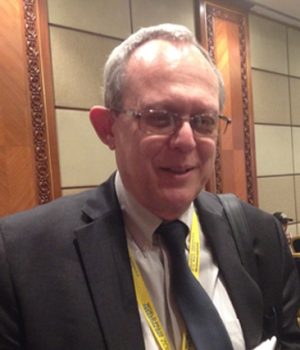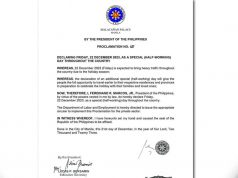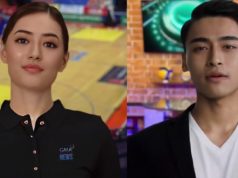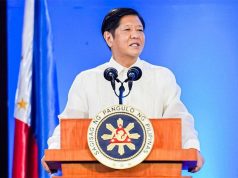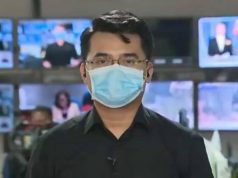JAKARTA – The United Nations Educational, Scientific and Cultural Organization (UNESCO) is interested in visiting the Philippines and taking a look at the continued harassment and violence against media practitioners.
UNESCO Assistant Director General for Communications and Information Frank La Rue said while they have not been invited by government, they have received several invitations from civil society. They were “considering accepting one of those invitations” and grab the opportunity to look into “allegations of harassment and violence” submitted to the agency.
At the same time, La Rue, who used to be UN special rapporteur on the right to freedom of expression and opinion, said “it’s very important that the Philippines responds to these communications on the allegations.”
A tally by the National Union of Journalists of the Philippines places the number of journalists murdered in the country since 1986 at more than 170, including the first one killed under the Duterte administration: community publisher Larry Que of Catanduanes, who was gunned down in December 2016 after writing a column blaming official negligence for allowing a drug laboratory to operate in the province.
Threats against journalists and news outfits have also spiked, apparently encouraged by President Rodrigo Duterte’s invective-driven tirades against critical reportage. Recently, Duterte threatened to personally block the franchise renewal of broadcaster ABS-CBN and to go after the owners of the Philippine Daily Inquirer for alleged tax evasion.
La Rue said UNESCO is concerned about “how to enhance and guarantee (the) safety and freedom of the press in the Philippines” as he acknowledged that the agency had a “profound preoccupation for all countries, specifically on issues of impunity.”
Worsening threats against journalists and press freedom was also highlighted by UNESCO Director General Irina Bokova in her keynote address at the observance of World Press Freedom Day, which this year took place in the Indonesian capital, drawing more than a thousand delegates from journalists’ organizations and freedom of expression advocates from all over the world.
“Only the independence, the character, the objectivity and the good judgment of the journalist and the media can overcome the terrible storms of the new world that threaten freedom of information everywhere,” Irina said, quoting Colombian journalist Guillermo Cano Isaza.
Cano was assassinated in 1986 and it was for him that UNESCO named its World Press Freedom Prize.
Underscoring the growing danger for media practitioners, Bokova said: “Far too often, murder remains the most tragic form of censorship — 102 journalists paid the ultimate price in 2016.”
“This is unacceptable and weakens societies as a whole,” she said. “This is why UNESCO is spearheading the UN Plan of Action on the Safety of Journalists and the Issue of Impunity with partners around the globe.”
At the same time, Bokova also pointed out that journalism is “facing a crisis of audience identity” at time “where old challenges are merging with new threats.”
“The media business is being shaken to the core with the rise of digital networks and social media,” she noted. “Citizen journalists are redrawing the boundaries of journalism. Media accountability and credibility are falling under question.”
“Online, the lines are blurring between advertising and editorial material, and we see private actors rising as key intermediaries, accompanied by new forms of ‘private censorship’,” she added.
Bokova said these emerging threats were merging with “deeper transformations affecting societies.”
As “post-truth,” the Oxford Dictionaries Word of the Year for 2016, has “combined with the concept of ‘fake news,’ questions are rising that go the heart of free, independent and professional journalism,” Bokova said.
In the face of these, the UNESCO chief said, “The media must not only be a source of reliable information — it should provide a platform for a multitude of voices and mobilize new forces for tolerance and dialogue.”
She stressed: “The stakes are clear. We need original, critical and well-researched journalism, guided by high professional, ethical standards and a quality media education — combined with audiences that have the right media and information literacy skills.”
Pointing to the theme of this year’s World Press Freedom Day observance, “Critical times call for critical minds,” Bokova challenged “everyone to sharpen their minds to defend the freedoms that are essential for justice and peace.”

